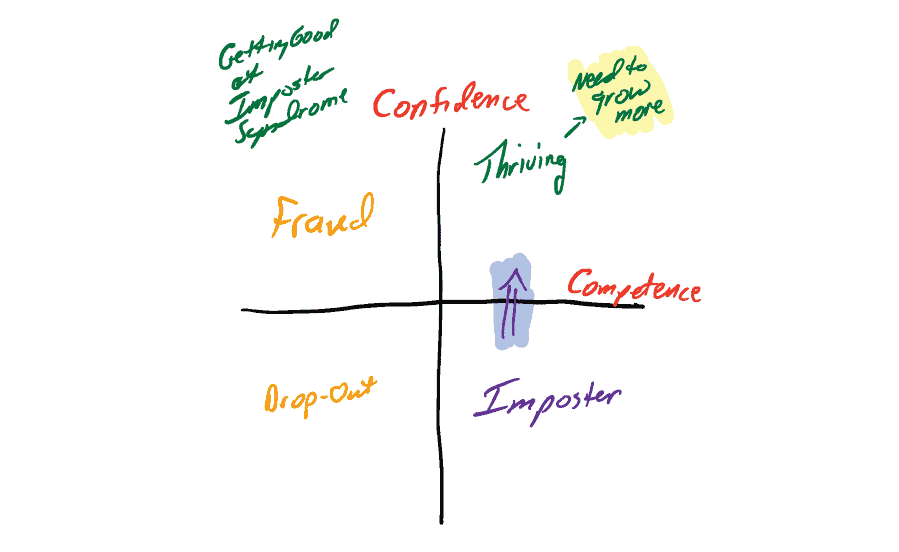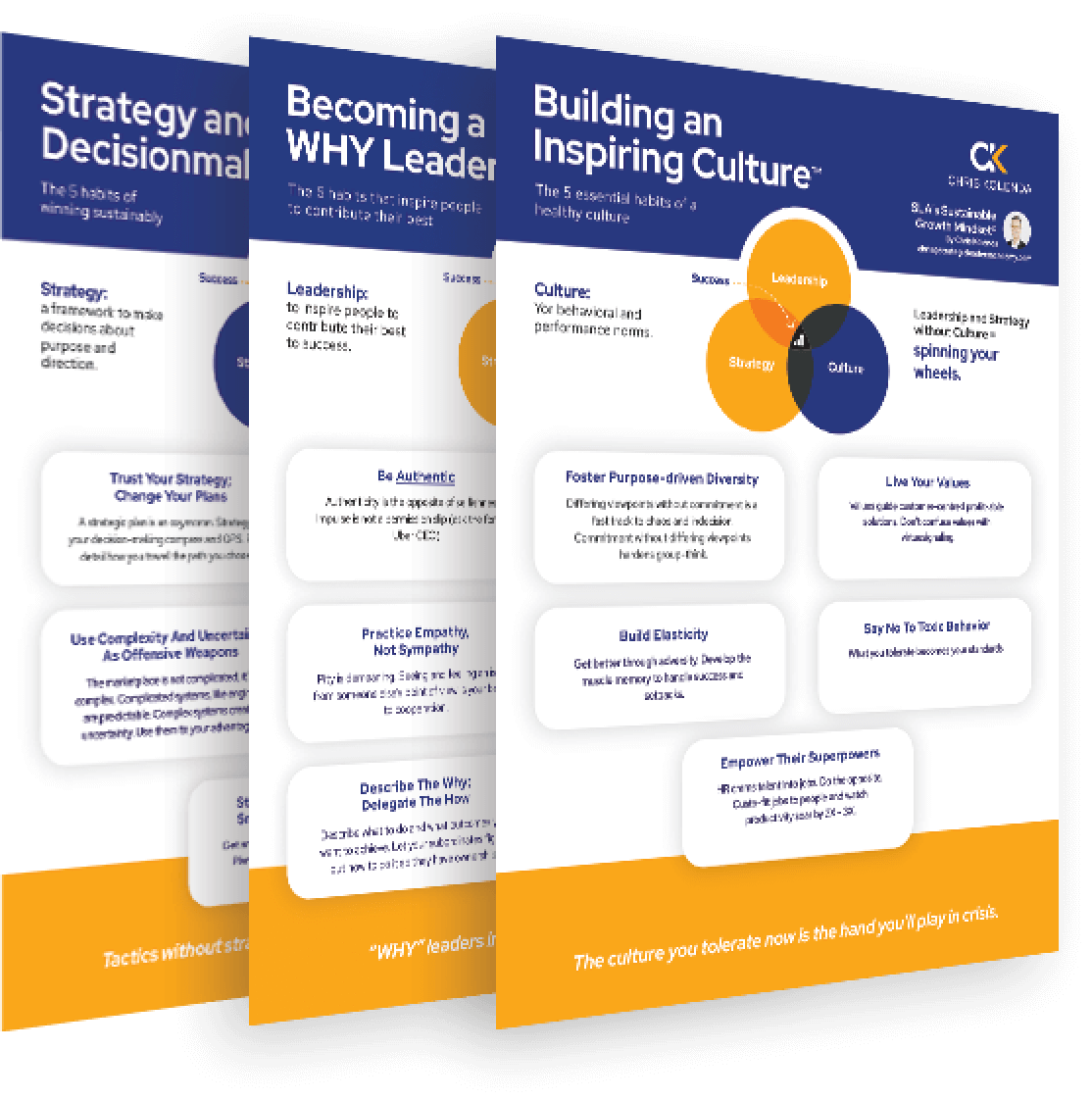Get Good at Imposter Syndrome
Discomfort means you are playing at a new level. Here’s how to get good at it.
Why It Matters
The same habits that got you to a $10m company will not get you to $100m. You can run a $10m, company through brute force and expertise. Try that approach at $100m, and you’ll be the reason your company fails.
You must grow into a WHY leader to succeed at $100m, which means shedding your body armor and relying on your subordinates’ expertise.
You’ll experience fear and anxiety along the way; below are good ways to handle that.
Worry if you don’t feel distressed. It means you are in a comfort zone, firmly cased in your body armor, and unable to grow.
By the Numbers
Imposter syndrome is typical and can be healthy:
- Roughly 70% of people report feeling imposter syndrome.
- 75% of women executives report feeling imposter syndrome.
- One study suggests imposter syndrome affects 80% of men and 90% of women.
Take These Steps to Get Good at Imposter Syndrome
- Label the emotion. “I am feeling anxiety” because getting it into the open lessens the feeling’s power.
- Determine what’s causing the emotion. “I am feeling anxiety because I’m not confident that Kevin can handle the job I used to do myself.”
- Identify an advance and a retreat. Advancing action brings you closer to your goals and values; retreat takes you further away. “Developing Kevin and developing my ability to develop Kevin is an advance. Doing the job myself is a retreat.”
- Take action. Invest in advance.
- Avoid positive rescripting and happy talk because struggling with the emotion strengthens the feelings.
- You are better off accepting the emotion and taking advancing action.
- When you feel like you are thriving, look for new ways to grow. The right coach will keep you from being trapped in a comfort zone.

Abraham Lincoln made 1mm adjustments to deal with imposter syndrome. His legendary melancholy never faded, but he developed non-stylistic techniques to manage it. In this 30-minute live discussion, I’ll share the practices that worked for him and how you can work them into your 1mm adjustments so that you advance toward your values and goals.
Going Deeper.
Imposter Syndrome is a tape playing in your head that you aren’t good enough to do the job. Russ Harris explains in The Happiness Trap that the most common advice — positive scripting — is counterproductive.
Imagine your favorite dessert — think about the flavor and texture and how much you enjoy eating it. Now, try to stop yourself from thinking about the dessert, and you’ll find the images keep coming back.
It’s the same with anxiety. Try to push the thought away or put a positive spin on it, and the fear tends to return more frequently. Struggling with the emotion hooks you. Obeying it can move you further away from the kind of leader you want to be if it leads to retreating action.
Growing requires you to get good at handling discomfort, which means you need productive ways to deal with the tape playing in your head.
You reduce its grip when you label the emotion (“I notice that I am feeling fear”). You can identify the sources of the fear and take action that moves you toward your goals and values (advancing action) while avoiding activities that move you away (retreating steps).
Not feeling imposter syndrome could indicate that you are not pushing the envelope far enough, avoiding risk, and settling into your comfort zone. Complacency kills.


